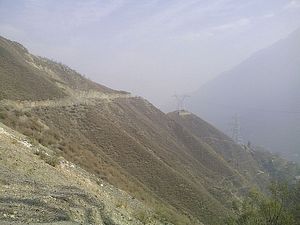On Sunday evening, heavily armed militants attacked adjacent camps of the Indian Army’s 46 Rashtriya Rifles and Border Security Force (BSF) in Kashmir’s Baramulla district, resulting in the death of one Indian BSF constable. Sunday’s incident is the second such attack by militants on an Indian Army camp in Kashmir in less than two weeks, coming after a similar attack on September 18 with a considerably higher casualty count on an Indian Army brigade headquarters in Uri. The Uri attack, with 20 soldiers killed, marked the Indian Army’s single most devastating day in more than a decade. Notably, Sunday’s attack also comes four days after India claimed to have staged “surgical strikes” on terrorist “launch pads” on Pakistan’s side of the Line of Control, the demarcation between India- and Pakistan-occupied Kashmir.
The details out of the incident Sunday evening in Baramulla remain murky. As of this writing, no conclusive official confirmation was available regarding the number of attackers, whether the attackers had been able to escape, or if they had been killed in the encounter. High-profile attacks this year, including January’s strike on an Indian Air Force base in Pathankot and the September attack on the Uri base, resulted in the deaths of all the attackers — a signature of fidayeen or “suicide squad” attacks.
As with the Uri and Pathankot attacks, the Baramulla attackers appear to have been highly trained with their weapons and carried grenades; above all, they were likely infiltrators across the Line of Control. Unlike Uri and Pathankot, the Baramulla attackers appear to have been unsuccessful in entering the 46 Rashtriya Rifles camp. Indian authorities haven’t yet attributed the attack to any particular militant group.
Retaliation for Cross-Line of Control Raids?
Given India’s unusual decision to publicize its claimed “surgical strikes” across the Line of Control earlier this week, which Pakistan has denied ever took place, it isn’t out of the realm of possibility that Sunday’s attack could have been an act of retaliation by attackers who may have successfully crossed the LoC weeks earlier. It isn’t probable that new attackers could have successfully infiltrated in the aftermath of last week’s cross-border raids, given the four-day interval between the two events. Moreover, following the cross-LoC strikes, Indian authorities had been on high alert in Kashmir, expecting increased infiltration attempts and attacks as retaliation. The Indian Army has reportedly stopped multiple infiltration attempts across the LoC in the aftermath of the Uri attack.
One of the looming questions in the aftermath of the Indian cross-border raid, which was portrayed by the Indian Director-General Military Operations (DGMO) as a preemptive act of self defense against terrorism, was the possibility that it would invite a response from Pakistan. Delhi’s public messaging around the strike highlighted that India had options available to respond to Pakistan’s use of subconventional proxies without sparking a conventional conflagration (increasing ceasefire violations at the LoC aside).
However, given that Pakistan has continued to hold to its position that, despite Indian claims, no “surgical strikes” even occurred, it’s plausible that Islamabad wasn’t quite feeling the same retaliatory pressure that it would have had India provided incontrovertible evidence of its claimed “surgical strikes” beyond the unusually forward statement by its DGMO. Moreover, the Indian DGMO’s statement on the attack went to lengths to clarify that the intended target was “terrorist teams” planning attacks inside India and not the Pakistani Army’s broader infrastructure along the LoC.
What’s additionally interesting in the aftermath of Sunday’s attack is the extent to which it might or might not have sticking power with the Indian public in the same way that Uri did. Doubtless, one of the factors leading to the Indian government’s decision to stage a cross-LoC strike and speak about it publicly last week was the immense public outcry after the devastating attack against the Indian Army at Uri. A broad reading of the Indian press suggests that the claimed cross-LoC strike assuaged Indian cries for revenge, but Baramulla may yet demand a move from the Indian side, even if the Indian Army’s casualty count was far from what was endured at Uri or Pathankot. (Paul Staniland’s post at the Monkey Cage is worth a read for more on the differing escalatory pressures on India and Pakistan.)
Finally, even if the Baramulla attack wasn’t necessarily coordinated or sanctioned by militant handlers across the LoC in retaliation for last week’s claimed “surgical strikes,” it underlines the inherent difficulties for India in completely sealing off militant infiltration and attacks through hard power alone. India may have demonstrated an ability to make good on preemption for self defense with last week’s “surgical strikes,” but vulnerabilities in Indian counterterrorism and intelligence along the LoC show that challenges persist in the realm of prevention.

































